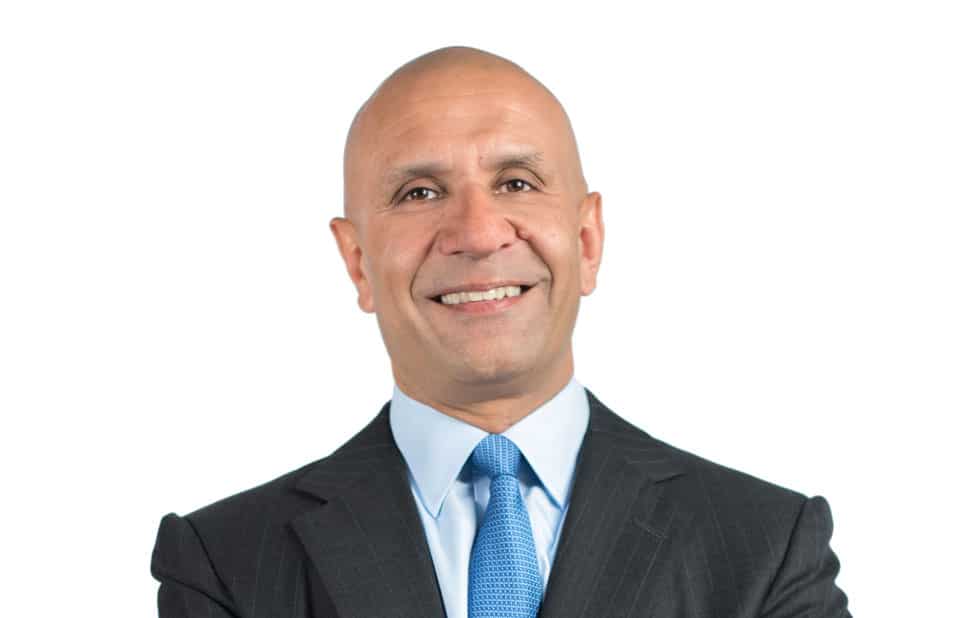Making the Seemingly Impossible Possible…The Secret Behind Building a Trust Culture

Take this simple test: What one word can help companies outperform their peers by up to 400%, increase employee motivation 260%, and reduce absenteeism by 41%?
If your response is “trust,” congratulations! A recent Deloitte study reinforced the power of trust in earning competitive advantage and long-term loyalty.
But knowing the word and building trust in your organization are two different things.
Deloitte’s Amelia Dunlop and Ashley Reichel’s research further reveals roughly one in four workers don’t trust their employer. Making matters worse, companies overestimate employee trust by nearly 40%.
And there’s more. Gallup’s annual “State of the Global Workplace 2023 Report” links trust to employee engagement. Low engagement has been proven to reduce productivity, increase turnover and decrease revenue. In fact, the Gallup study estimates low engagement costs the global economy $8.8 trillion – 9% of global GDP.
As a senior executive in a large multinational, I helped build a culture of trust within my organization – engaging as many as 5,000 team members. I learned that a trust-based culture not only achieves business goals. It exceeds them.
There are limitations on what can be accomplished in a business unit of a large organization. I was eager to fully apply this principle across a company when I became Chief Executive Officer of Albireo Pharma, a publicly traded biotechnology firm. It worked! As just one example, my team turned a traditional timeline to submit a drug for approval from six months to six weeks – filing with both US and EU regulators. As a trusting team, we accomplished the seemingly impossible and gained a big competitive advantage for Albireo.
The secret sauce that made that possible? Treat your team like adults.
While this may seem basic, many organizations fail to do it effectively. Overly detailed policies, extensive procedures and micro-managing can infantilize employees, creating an environment where they feel distrusted and where too much time is spent on navigating the “rules” versus doing true value-added work. And, naturally, that environment impedes performance.
I’ve translated this “Adult” concept into seven strategies that benefit leaders, their teams and their organizations.
Trust-Building Tactics
- Connect the Dots – Employees need to understand how their work contributes to the big picture, especially when that picture is challenging. As adults, they deserve truth and transparency. In fact, respecting maturity is a major motivator.
Example: As President of the European region of a major pharmaceutical company, my team had to turn around a recession-ravaged business. I laid out the brutal facts, helping each member of the team understand their role in our rebound. Together, we turned a 5% decline into a 30% profit increase over four years – one of the highest growth rates versus benchmark European pharmaceutical divisions. - Connect to Customers – Most adults want to be part of something bigger than themselves – beyond their team and company. As a veteran pharma leader, I have learned the power of patient first, patient focus, patient follow-through. In high-stress, extra-hour days, weeks and months – connecting the team to the “why” of their work, works wonders.
Example: Albireo’s mission was “Providing Hope for Families.” And it wasn’t just words. We helped the adults who worked for us see the difference they were making through weekly patient stories and inviting patients and their families to our town halls. That connection resulted in heroic employee efforts that resulted in beating drug development timelines, expanding product offerings and increasing our value so we could invest in more medical miracles. - Prioritize Deliverables Across the Enterprise – Beyond conveying challenges, you need to translate enterprise goals into simple, measurable individual deliverables. From the Board, to the C-Suite, to every layer of your organization. Each level of leaders should avoid a laundry list of ‘To-dos’ and create 4-6 key crystal-clear deliverables that collectively become the inputs to achieve enterprise goals. Then refine these deliverables with employees, hold them accountable and get out of the way.
Example: A leader of a large team brought me a two-page list of all the things he planned to accomplish the following year. They were all important activities, but many were inputs versus outputs of their efforts. We condensed the two-page list into four deliverable outputs, empowering the team to focus, play their position and meet performance expectations. - Fight Unnecessary Bureaucracy– Drug discovery, development and commercialization is a highly regulated process. Critical requirements, guidelines and laws must be followed. And if you are a public company, there are even more requirements. Fulfilling these obligations is not an option – but overdoing it can paralyze an organization. High-quality governance for all procedures, standard operating practices, etc. is needed to strike the right balance and unlock organizational energy.
Example: At Albireo, we created a top-quality compliance program that was effective, but consumed significant organizational time. By challenging the team to deliver training in multiple formats, they increased its effectiveness and efficiency. - Reject Lowest Common Denominators – In the vast majority of cases, adults seek to do the right thing. Organizations either expect that… or they don’t. And when they don’t, they create bureaucratic policies and procedures to guide employee behavior. In my view, that’s non-value-added effort. Do adults who work in companies really need dress codes, strict vacation policies and multi-page expense procedures? My leadership team and I rejected such rules. Instead, we simply expected our employees to be adults, reinforcing our trust in them and freeing up time to focus on real work vs. compliance reports. This isn’t unique to Albireo – other companies apply the same philosophy.
Example: Earlier in her career, General Motors CEO Mary Barra reduced a 10-page dress code to two words: “Dress appropriately.” It worked. And was a key step in creating a more empowering culture. - Value the Individual – Adults are capable of making amazing contributions. They just need to be unleashed. All they need is clear direction, resources and authority to make decisions… then step aside and watch them deliver.
Example: In many companies, for control reasons, team members in lower levels of the organization have a small amount of authority to spend money and make final decisions. At Albireo we believed that those closest to the project could make the best expense decisions. Compared to many organizations, we gave great latitude in expense authority at all levels. I approved only very large expenses and the result was faster decisions and empowered individuals. For example, I recall one of our marketing team members saying, “I love working here because I can actually make a decision and then act quickly to execute on it.” - Optimize Choices – Adults appreciate the opportunity to elect options that are customized and benefit them and their families. So whenever you can, give them that choice. Need to ensure your team works core hours to enable collaboration and customer access? Check. Can you limit that time to 4-5 hours, with optional start and end times in the day to suit individual schedules? Check again. In addition, rewards and benefits offer lots of opportunities to allow your adult team to choose what’s best for them.
Example: At Albireo, our equity compensation program allowed employees to choose between 100% equity options, 100% RSUs, or 50/50. There was no additional cost to replacing a 100% option program, but the positive energy from the change was remarkable. We also maximized their benefits choices, expanding options to include such things as pet insurance, gym memberships and specialist services. Our team deserved it… and repaid us with their commitment and loyalty.
Treating Team as Adults = Outstanding Results
I hope these tactics and examples encourage you to think about your culture, and the impact of your leadership approach. In my experience, treating employees as adults accelerates performance… person by person, and across the enterprise.
Written by Ron Cooper.
Have you read?
These American Company Slogans (and Taglines) Everyone Knows.
America’s Best Investment Advisory Firms, 2023.
Report: These Are The Most Eaten Foods in the World, 2023.
Most expensive cars in the world, 2023.
These Are the Richest Cities in the World, 2023.
Richest Professional Football Clubs In The World, 2023.
Add CEOWORLD magazine to your Google News feed.
Follow CEOWORLD magazine headlines on: Google News, LinkedIn, Twitter, and Facebook.
Copyright 2024 The CEOWORLD magazine. All rights reserved. This material (and any extract from it) must not be copied, redistributed or placed on any website, without CEOWORLD magazine' prior written consent. For media queries, please contact: info@ceoworld.biz








